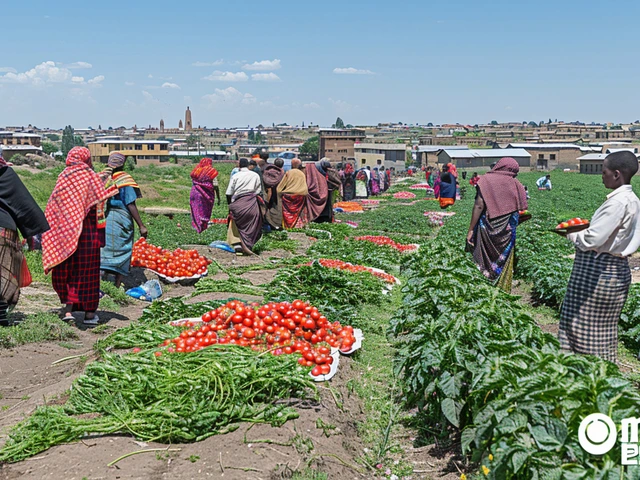Injera: Where Ethiopia’s Food Culture Meets Careers and Income
You’ve probably heard about injera—it’s the star of Ethiopian meals, but it’s also way more than just food. Injera weaves into Ethiopia’s jobs, living standards, salaries, and even the way money moves through cities and villages. Ever wondered how something on your dinner plate ties into the nation’s economic life? Here’s how injera connects to everything from career choices to income potential.
First off, making injera isn’t just a home kitchen thing. Thousands of people work in bakeries, markets, and supply chains all focused on this one product. Jobs pop up in teff farms (that’s injera’s main ingredient), millers, wholesalers, street vendors, and restaurants. If you’re looking for work in Ethiopia, the food industry—especially injera—offers opportunities that don’t require fancy degrees. Many families fund education and daily needs through injera-related businesses. It’s a real example of how a traditional food creates modern jobs.
The price and demand for injera impact monthly budgets. Ask any resident in Addis Ababa or beyond—food costs shape salary choices, rent decisions, and even which jobs locals chase after. When teff prices go up, so does injera, making it a hot topic in salary negotiations and employment talks. You don’t need a finance degree to see the ripple effect; just check out the lunchtime crowds or talk with your local market seller. It’s all linked.
Let’s talk about salaries. Whether you earn minimum wage or run your own eatery, food work in Ethiopia remains a major income source. Chefs, street cooks, bakers, and food delivery start-ups all find ways to tap into demand for fresh injera and traditional dishes. People are even turning to online platforms to sell injera nationwide, creating new digital jobs that wouldn’t have existed ten years ago. You can see how today’s money-making ideas are rooted in local tastes and needs.
Wealth in Ethiopia isn’t measured only by bank accounts. Families with a steady injera business might live better than someone with a formal office job. The way money flows—between grain buyers, factory workers, and restaurant staff—shows that following the injera chain is a shortcut to understanding who has financial security and who’s still hustling for it. It’s a window into the wider economic status of the country.
Think making money in Ethiopia is only for tech pros or investors? Injera says otherwise. Even with online dating apps or investment trends grabbing headlines, it’s this simple bread that points to practical, daily ways people find work, set salaries, and build their lives. If you want to get how income, jobs, and wealth work in Ethiopia, start by following the path of injera—from farm to table. You'll learn more about the way people really live and earn than any economic report can tell you.





